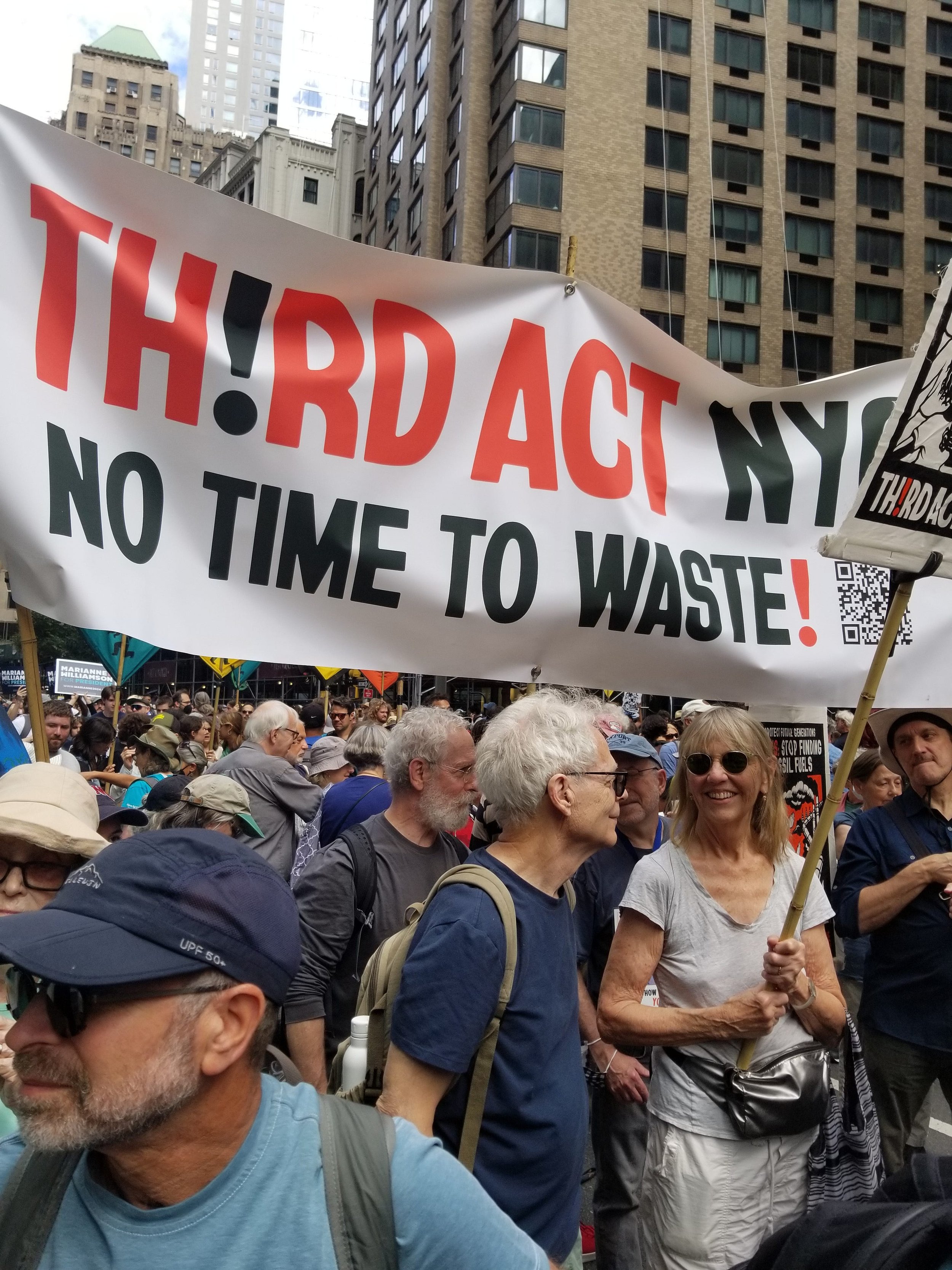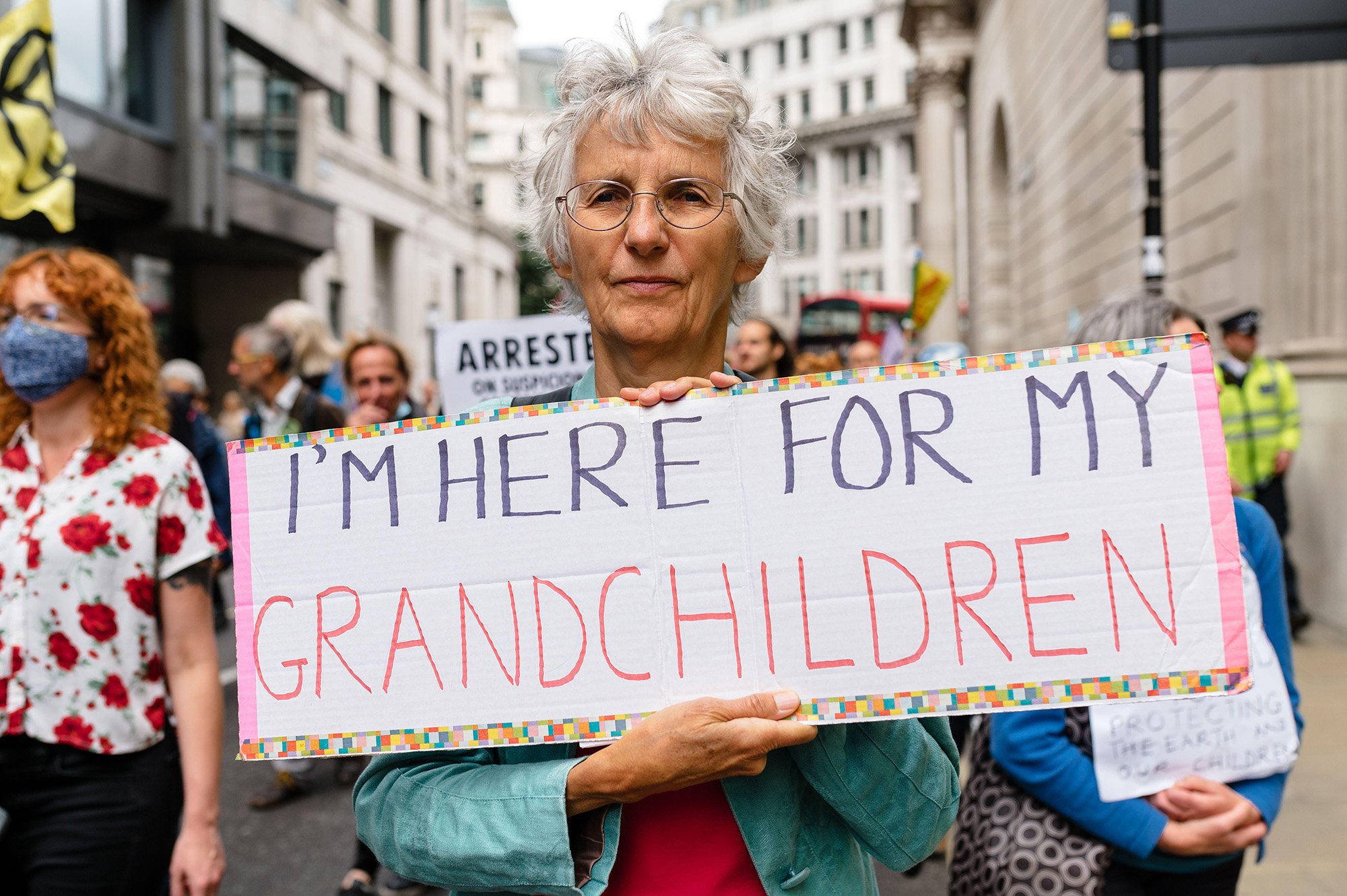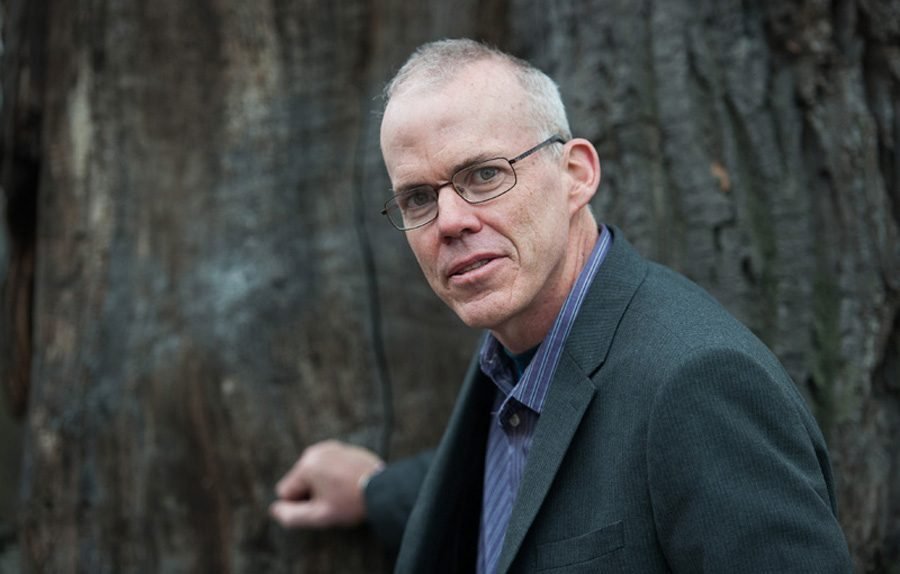Bill McKibben, One of the First Climate Optimists
A piece by Matthew Gutierrez, contributing writer at The Climate Optimist.
It’s Not Over Yet
Amid what’s shaping up to be the hottest year on record, The Climate Optimist spoke with one of the first climate optimists. He’s also among the pioneering leaders in the environmental movement: Bill McKibben, who wrote The End of Nature, the first mainstream book on climate change way back in 1989. He’s since led the environmental organization 350.org and written nearly 20 more books and many essays for The New Yorker, as well as his excellent Substack newsletter, The Crucial Years.
Speaking in June from his home in Vermont, McKibben details his latest endeavor, Third Act, a nonprofit designed to engage Americans older than 60 in the climate fight.
“Even if we do everything right, we’re going to have to deal with pretty significant challenges from climate change,” McKibben says. “The key job is to prevent it from getting any worse than it has to get.”
This interview has been edited lightly for clarity.
Recyclable sneakers by Thousand Fell
TCO: Where did you get the idea for Third Act?
Bill: A few years ago, I started thinking about how young people are in the lead on climate work. There’s Greta Thunberg, but there are 10,000 Gretas. I worked with college kids from the Sunshine movement that brought us the Green New Deal. I’ve worked with college kids all over. It’s great young people are taking the lead, because they’re going to have to deal with this their whole lives.
But I got tired of hearing people say, “Oh, it’s up to the next generation to solve this problem.”
That’s unfair and impractical. Young people by themselves lack the structural power that we need to make change in the time we have. And that last part is important. If we had all the time in the world, then we could just let the Gretas of the world grow up to become senators and CEOs. But we don’t; we’re running out of time.
Who has structural power in our society? One of the groups that clearly does is old people like me. There are about 70 million of us over the age of 60. We vote. We have political power. And we’ve got most of the financial resources -- about 70% of the country’s financial assets. So it probably doesn’t hurt to have some people with hairlines like mine engaged in this.
TCO: But aren’t older people generally more conservative and less focused on the environment?
Bill: Political scientists insist people become more conservative as they age. But I felt that was less likely to be true because of the distinctive experiences of their first act. These are the same people who in the 1960s, 70s, and 80s were around the transformation of women’s rights, the Civil Rights Movement, and the first Earth Day in 1970.
Maybe in their second act, they got more into consumerism than citizenship. That’s water under the bridge. So, I figured there’d be people wanting to work on this. Now, we have tens of thousands of people signing up all over the country forming chapters.
Photo taken at the NYC climate march yesterday, Sept 19, 2023. As shared in Bill’s Newsletter.
TCO: Where are you seeing a lot of interest?
Bill: All over. Our Florida chapter is live in August, which is good because Florida is kind of the world capital of older people. From a distance, people think, “Oh, it’s all Trump supporters holed up in the Villages playing golf.” But actually, Florida is way more interesting than that. It’s an ethnically diverse place. It’s a place feeling the effects of climate change already. And there’s been a lot of good work done on climate change by activists across the state.
If anybody’s going to stand up, it’s likely to be Floridians, or you know, former (northerners) who are now Floridians. People are attracted to the state’s beauty and warmth, but you know, people who moved there didn’t leave behind their sense that politics is about getting things done. It’s about making important changes. It’s not just, you know, Ron DeSantis playing games with Disney or whatever.
TCO: It’s incredibly beautiful. Strip away the highways and developments, and there’s so much nature to appreciate there.
Bill: Florida is fantastically beautiful. But too often politics has been ruled by people who think in very short-term ways, and you can see the results of that in Florida.
They’re feeling the effects of climate change more than a lot of other states, whether it’s the warmth, incredible heat in the summers, hurricanes, or the rapid rise of sea levels -- it’s truly profound. In Miami, we’re already seeing lots of street flooding on sunny days when there’s a high tide. We’ve gotten bad hits from hurricanes, but those aren't as bad as they will eventually be. And a real indicator is how difficult it’s becoming to get insurance. The insurance companies are less interested in writing you a policy.
Let’s face it. I’m going to be dead before the absolute worst of this kicks in. Once you get closer to the exit than the entrance, your legacy starts to feel a little more important.
And your legacy is what you leave behind for the people you love the most. And for people my age, we’re conscious that we may leave behind a world worse than the one we found.
TCO: How many people are on the Third Act’s email list?
Bill: It keeps steadily rising. We’re around 70,000 now (in late June). People are forming chapters all over the country. Third Act has lawyers, former educators, pastors, former engineers, artists, lawyers. We have terrific diversity.
TCO: How do you manage your newsletter, “The Crucial Years,” with all your speaking and writing?
Bill: I’ve been at this for a long time. I’ve had some time to work on it all. I do all the work at Third Act as a volunteer. But it probably takes up most of my time and I enjoy it immensely. I’d say half the people who are at Third Act were (environmentally) active when they were young. The other half have never done anything like this. It’s fun because people come to this with a lifetime's worth of skills and connections. They’re incredibly effective organizers.
TCO: When did you become environmentally conscious?
Bill: I was in my 20s working for The New Yorker when I wrote a long piece about where everything in my apartment came from. The New Yorker had a lot of money in those days, and so I went to Brazil because ConEd was buying oil from Brazil. I went to the Arctic because there’s a big hydro plant in Hudson Bay. I saw uranium mines in the Grand Canyon, and on and on.
It was a long piece for the New Yorker that took up most of an issue. In the long run, that story taught me that the world is a physical place, which is a weird thing to say. But I grew up in the suburbs, and suburbs are kind of a machine for hiding the actual workings of the physical world from you. When you live there, who knows where your water comes from or where your waste goes?
TCO: It’s true, much of our modern society removes us from nature.
Bill: In Manhattan, where I lived in my 20s, it seemed like a place that could just sort of mint money out of thin air. But it was really interesting to see how dependent even Manhattan was. That set me up for reading early climate science that was coming out in the 80s, and that’s when I realized this was going to be a big problem.
At first, I realized that with my reporter instincts: Hey, this is gonna be the biggest story of all time, which it turned out to be. But I realized I wasn’t objective in the way reporters were supposed to be. I really cared whether the planet got wrecked or not. So, ever since, I have done a lot of journalism, and it’s all accurate, but I also do a lot of organizing because I care about the outcome here, and I just make sure I don’t get paid for the organizing so I can keep writing in good conscience about it.
TCO: How is nature involved in your life?
Bill: I go for walks outside; that’s the main thing that keeps me sane. You know, we’ve damaged this planet a lot, but it’s still an incredibly beautiful place. And one of our jobs is to pay witness to that.
TCO: How can people make an impact today in the climate fight? You have said one way to help is to become an electrician as we try to electrify everything.
Bill: That’s a very useful thing, yes.
But what I really tell people when they say, “How can I help?” is whatever you do in your career, I ask that you be a little bit less of an individual. Americans err on the side of hyper-individualism, but we really should try and be a little less individual and join together with others in movements large enough to make a real difference. We're not going to save this planet one Tesla at a time. We’re also going to have to do some political work and unite.
TCO: What has inspired you lately in climate?
Bill: The Inflation Reduction Act came up with all this money for clean energy. We’ve reached a point where the technology has improved so much that we don’t need to be setting things on fire anymore. You don't need a fire under the hood of your car. You don’t need a spark plug because EVs work fine. You don’t need a fire in your kitchen. You don’t need a furnace. It’s an interesting moment.
There’s a tremendous number of startups and ideas all over the world. It’s not just about the idea, of course; it’s about the execution. But we have so much at our fingertips to make progress.
TCO: How much do you travel to speak about climate and the environment?
Bill: I used to be on the move all the time. I founded 350.org, and we’ve organized demonstrations in every country on Earth except North Korea. So I have a lot of travel experience, and I hope it’s all worth the carbon that it took. Now, I’m happily able to stay home much more, which is great because I love home and one bright side of the pandemic was that it taught everyone how to use Zoom. That includes old people because we wanted to talk to our grandkids. I give about 10 talks a week on Zoom. I love it. It’s a lot better than having to go to the airport and it saves a lot of time.
TCO: Any climate-related books you suggest?
Bill: The Water Will Come, by Jeff Goodell. The Ministry for the Future and New York 2140 by Kim Stanley Robinson.
Greta Thunberg’s new book, appropriately named “The Climate Book,” is also wonderful. It’s a great compilation. I wrote an essay for it. It’s a good place to start and pretty amazing that its editor didn’t graduate high school until (this spring).





